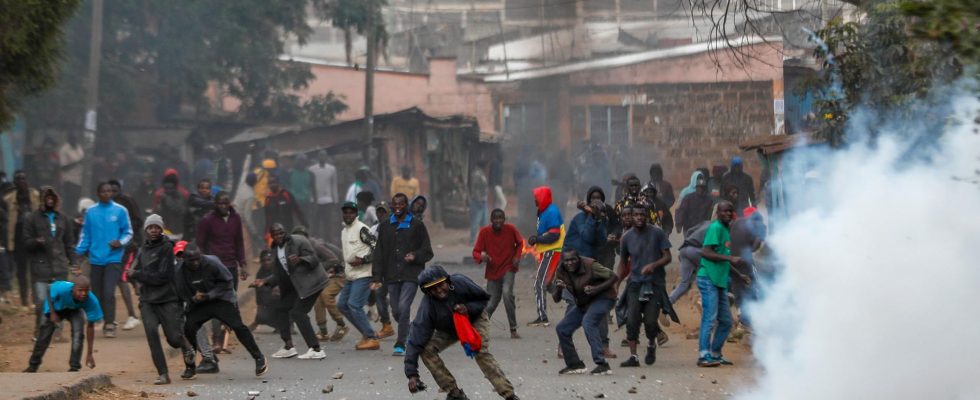The unrest in Kenya’s capital continues. Police fired tear gas and rubber bullets while protesters responded by throwing stones behind barricades of burning tires.
For the third day in a row, police and anti-government protesters clashed in the Kibera area of Nairobi on Friday.
The country has been struggling with high inflation since last year and opposition leader Raila Odinga had called for three days of national protests against rising living costs.
By Friday, the protests had been scaled down in most of the country and schools and shops could reopen, but in Kibera they continued – first as a peaceful protest, then with clashes with police forces.
Last summer, Odinga narrowly lost the presidential election to William Ruto, claiming electoral fraud was behind Ruto’s victory and that his government is illegitimate, but his allegations have been rejected by the country’s judiciary.
The clash continues at the same time as demands for dialogue between the government and the opposition increase.
In both April and May, Odinga called off demonstrations after President Ruto agreed to open a dialogue, but the talks broke down and Ruto earlier this week warned that anyone trying to “cause chaos” will be met with heavy police action.
The protests in the country have claimed 20 lives since March.
FACT Background: The 2022 Kenyan elections
As in the 2013 election, the fight in August was between current President Uhuru Kenyatta, at the head of the party grouping Jubilee Party, and Raila Odinga, who leads the National Super Alliance (Nasa for short). The 2007 and 2013 elections were marred by allegations of fraud and Odinga has claimed he was cheated of victory on both occasions.
After the 2007 elections, widespread unrest broke out, which in total cost over 1,000 people their lives.
Last year’s election on August 8 was 72-year-old Odinga’s fourth attempt to become president. This time too, the Electoral Commission declared incumbent President Uhuru Kenyatta the winner, with 54 percent of the vote. But the result was appealed and annulled on September 1 due to “irregularities”.
The re-election was held on 26 October, despite Odinga boycotting it because he believed that the reforms had not been sufficient and that it would therefore not be fair.
The country’s Supreme Court has laid the blame for the problems on Kenya’s Electoral Commission IEBC.
Read more
